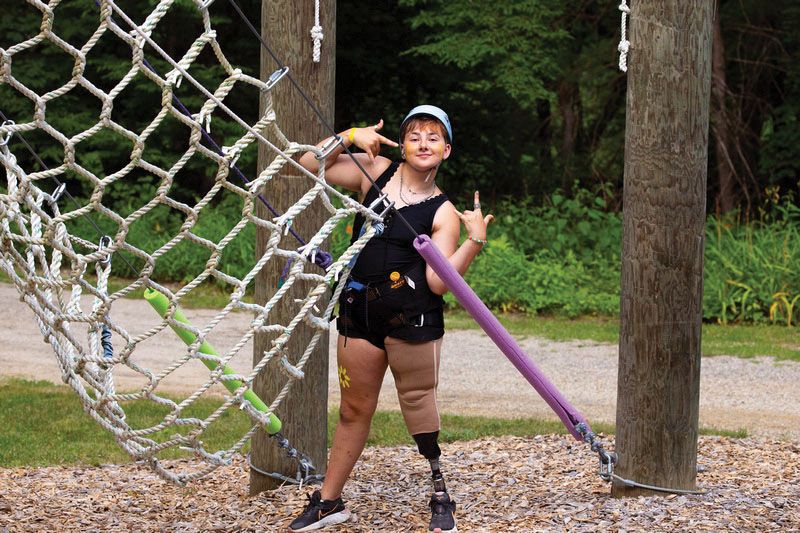They say it’s a small world — a cliché that perhaps rings truest for teens anxious to shake the dust off their hometown and test their independence pre-college. Travel camps whisk older kids off on a summer adventure, allowing them to experience new places and spread their wings away from home in an environment designed to nurture responsibility and the ability to adapt.
“The advantage of travel programs is that students are exposed to entirely new cultures and ways of life,” says Brent Watkins, director of global programming for Rustic Pathways, a 30-year-old outfit that hosts camps and service programs in such exotic locales as Morocco, the Fiji Islands, Australia and Peru, not to mention US-bound spots like New Orleans and the Grand Canyon.
“They will try new food, hear new music and participate in local customs that will be both strange and amazing. These eye-opening settings offer more profound experiences for students where they are able to examine their lives and the way they view the world.”
The ideal travel camper
“Many of our students have already experienced sleepaway camp and are ready for a bigger adventure. They are open to trying new things and meeting new people,” says Mike Meighan, director of ActionQuest and Lifeworks International, teen travel programs that include scuba diving off a sailing yacht in the British Virgin Islands and caring for Chinese orphans in Beijing. “Adventure-type and overseas camps tend to attract students from all over the USA and abroad, so the student body can be very geographically diverse. Being open-minded to a new experience is key.”
“You don’t have to be exceptionally adventurous or a ‘thrill-seeker’ to enjoy a travel program, but students who are curious and open-minded tend to enjoy travel the most,” adds Watkins.
“Most kids can thrive on travel if they give themselves a chance to try something new,” says Cricket Snearing, director of the American Camp Association–accredited Rockwood Adventures Teen Travel in Blue Bell, PA. “Some of our teens have parents who still program their every move. Traveling gives them the opportunity to take responsibility for themselves — staying in a hotel, eating out, doing activities as a group in a very public situation. These are great life lessons, all learned in a controlled environment with caring staff.”
Close to home or far-flung points?
 Travel camps offer kids a myriad of destination choices. Rockwood campers (6th to 9th graders) are a bit younger than most teen tourists, and as such stay relatively close to home. They take day or short overnight trips to points up and down the East Coast and over the Canadian border — jetboating at Niagara Falls, alpine sliding in Vermont, climbing lighthouses in Maine, standing on the glass floor atop Toronto’s CN Tower, sampling a host of major amusement parks.
Travel camps offer kids a myriad of destination choices. Rockwood campers (6th to 9th graders) are a bit younger than most teen tourists, and as such stay relatively close to home. They take day or short overnight trips to points up and down the East Coast and over the Canadian border — jetboating at Niagara Falls, alpine sliding in Vermont, climbing lighthouses in Maine, standing on the glass floor atop Toronto’s CN Tower, sampling a host of major amusement parks.
Farther-flung national and international programs tend to be for high schoolers and are designed to help kids “step outside their comfort zones,” says Watson. “Many of our programs take students to the rural villages and homes of our local staff. Here they are able to interact and form relationships with people of incredibly different backgrounds and lifestyles. This exposure really expands a teen’s perception and worldview. It helps them build leadership and communication skills that will enable them to navigate new situations and challenges back home.”
“Traveling overseas away from home allows students to experience true independence,” says Meighan. “Many of our students are traveling on their own for the first time and this can give them self-confidence and a sense of accomplishment. The environment promotes social, emotional and intellectual growth.”
Concludes Watson, “In an increasingly interconnected and globalized world, immersive travel experiences truly prepare students for a successful future.”
South Jersey freelance writer Ilene Laurel is a mom of two middle school boys who love to travel.






